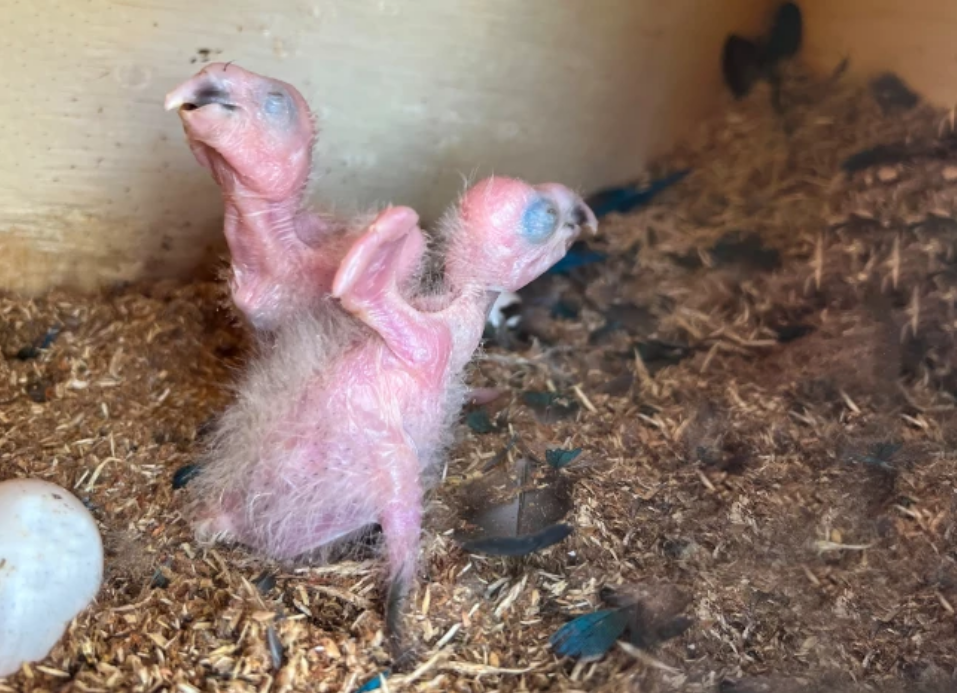Spix's Macaw breeds in wild for first time in 37 years
A pair of Spix's Macaw has hatched two chicks in Brazil, representing the first time the species has bred in the wild since the last nest was documented in 1986.
This follows the release of the Critically Endangered parrots back into the wild in Brazil, starting with the first eight birds in June 2022. The Spix's Macaw Release Project aims to establish a self-sustaining breeding population of the species in the wild.

The project has enjoyed an early success with birds breeding in the wild just 16 months after the first birds were released (Association for the Conservation of Threatened Parrots).
The last known wild Spix's Macaw vanished in 2000, possibly after colliding with power lines. This loss sparked a collaboration between private breeders, zoos and the Brazillian government to establish a captive population that could be released in order to restore the wild population.
The Association for the Conservation of Threatened Parrots (ACTP), a German conservation organisation, and its partners, released the first macaws back into their native Caatinga habitat, which is made up of small, thorny trees.
Dr Cromwell Purchase, director of ACTP Brazil and manager of the Spix's Macaw Release Centre, said: "A pair of Spix's Macaws, a male released in June and a female in the December 2022 release, have hatched two chicks in their chosen nest.
"It is one of the artificial nests we have strapped high in a Caraibeira tree. The initial clutch of eggs proved infertile, but the pair's determination prevailed, and the second clutch contained two fertile eggs, leading to the hatching of two healthy chicks."
Spix's Macaw became a target for poachers and collectors from across the world, with an illegal trade in the birds adding to the destruction of its habitat and driving consistent declines throughout the 1980s, leaving one surviving wild individual from 1990.
By the time the species was declared extinct in the wild, only a small number of captive birds survived. Despite the small genetic pool, a viable stock of captive birds has been bred to restore the wild population.
Dr Purchase added: "We thank the partners and supporters who have accompanied us on this remarkable journey. This historic breeding event provides hope and inspiration worldwide to join in protecting our planet's biodiversity."

